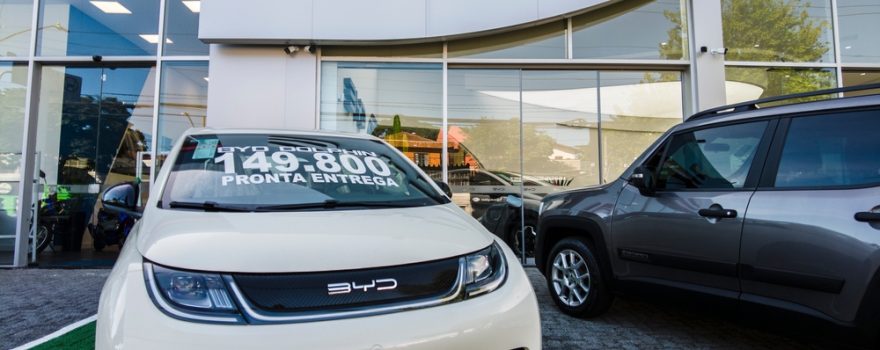
At the headquarters of BYD Co. in Shenzhen, a wall crammed floor to ceiling with about a thousand framed patents stands as a testament to the company’s innovation. These patents, representing more than 30,000 breakthroughs, highlight the ingenuity of the electric vehicle (EV) maker’s billionaire founder, Wang Chuanfu, and his team of engineers.
Among these innovations is the low-cost lithium-iron-phosphate battery, now used by industry giants like Ford, Tesla, and Toyota. This groundbreaking technology is one of the key assets propelling BYD to the forefront of the global EV market. After selling 3 million electric and hybrid vehicles in 2023 and generating $85 billion in revenue, BYD is on track to surpass Tesla Inc. as the world’s largest EV maker. Wang is further revolutionizing the industry with affordable EVs priced under $10,000, a vision reminiscent of Henry Ford’s goal of making cars accessible to the masses.
Wang’s focused approach sets him apart from Tesla’s Elon Musk, who diversifies his ventures across various industries. Wang, a 58-year-old chemist, began his career making cellphone batteries in 1995. He later refined this technology for car batteries, attracting investment from Berkshire Hathaway Inc. Chairman Warren Buffett. Wang’s strategic expansion into complementary sectors like battery storage, semiconductors, and solar energy has kept BYD aligned with its “Build Your Dreams” motto while maintaining low costs.
Known for his exceptional management and execution skills, Wang emphasizes vertical integration as a key strategy. Controlling the supply chain has given BYD a significant cost advantage over its competitors. Charlie Munger, the late vice chairman of Berkshire Hathaway, praised Wang as a fanatical engineer whose 70-hour workweeks saved BYD in its early years. Munger believed Wang’s hands-on approach and deep understanding of manufacturing made him more effective than Musk.
Bill Russo, head of Shanghai-based consultancy Automobility, likens Wang to Henry Ford. “Wang is to the 21st-century EV industry what Henry Ford was to the 20th-century automotive industry,” Russo said. Both entrepreneurs leveraged vertical integration and economies of scale to democratize mobility.
Despite challenges, Wang’s vision is gaining traction globally. In Japan, BYD recently launched its third EV, the Seal electric sedan, priced competitively at ¥5.28 million ($33,100). The company’s expansion into international markets is crucial as Chinese EV makers face increasing tariffs and trade barriers in North America and Europe.
Building a strong presence in countries like Japan is becoming increasingly important. BYD’s strategy includes rolling out a new model every year and expanding its dealer network. The company aims to operate 90 locations in Japan by the end of 2024 and 100 by the end of 2025.
For more insights into Wang Chuanfu’s impact on the EV industry, read the full article on Bloomberg.

 Get in Touch
Get in Touch 


